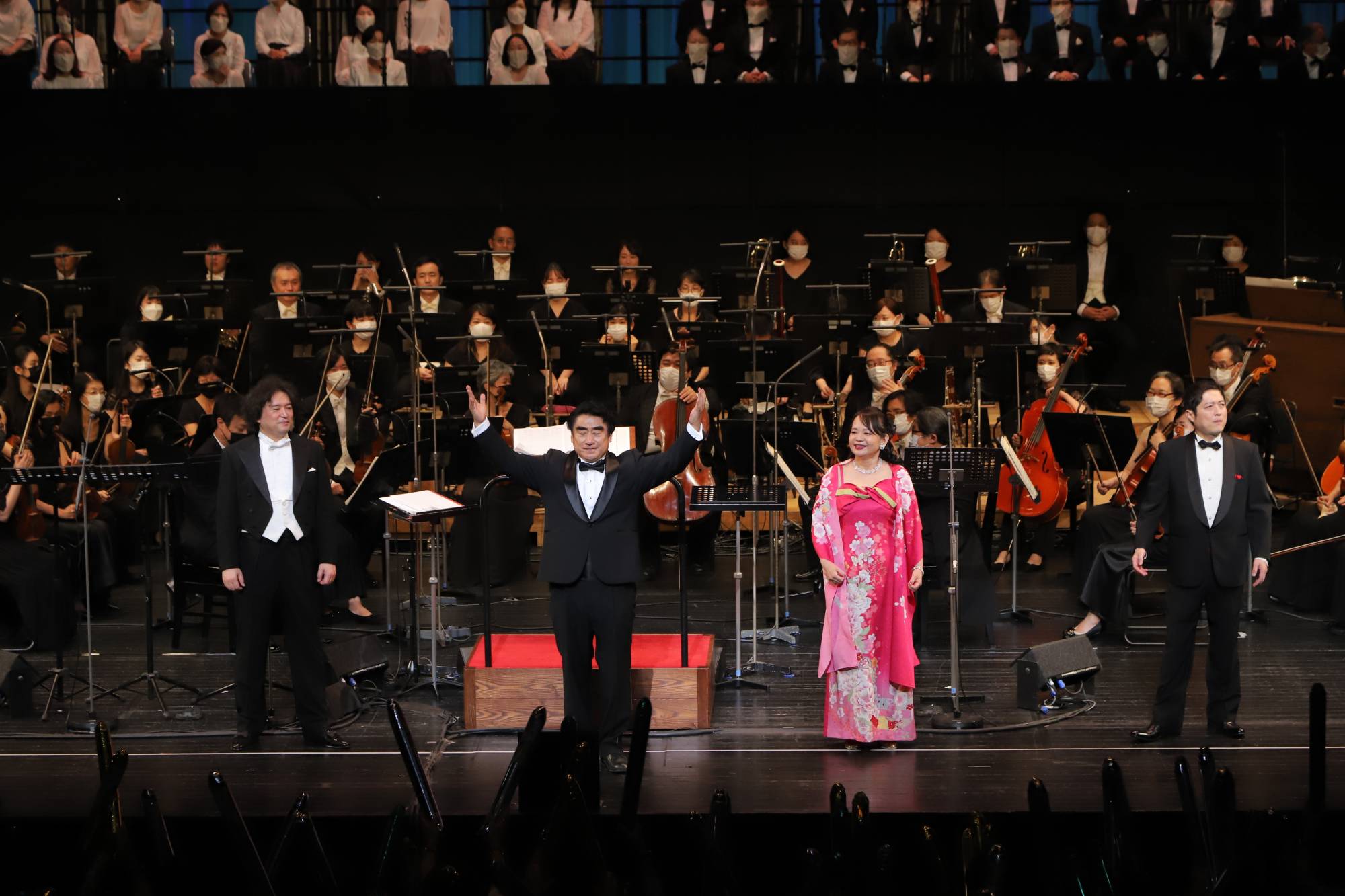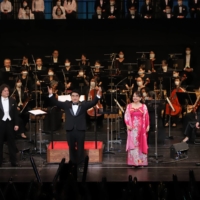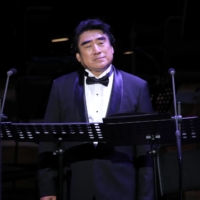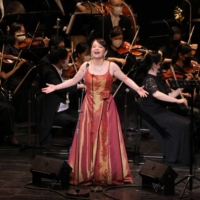Noted entrepreneur and Renaissance man Haruhisa Handa held two classical concerts at the New National Theatre, Tokyo on Sept. 18 and 19. The glittering gala played to a full house.
In addition to running multiple businesses, Handa is an active philanthropist, calligrapher, noh performer as well as an operatic baritone. He began his music training at 40, receiving his master’s degree from Western Australian Academy of Performing Arts, and was later awarded the title of First Grade Opera Singer by the China National Opera and Dance Drama Theater.
As part of the autumn evening concerts, the baritone performed and conducted several of his own original vocal and orchestral compositions throughout the evening.
The concert was divided into two sections, with the first part dedicated to classic arias and excerpts from the opera “Shotoku Taishi,” composed by Tomiko Koujiba, while the second part featured nine original orchestral compositions by Handa himself. The program was beautifully played by the Tokyo City Philharmonic Orchestra under the baton of conductor Hidemine Takano and livened by the voices of the Tsurukame Choir.
The evening opened on a high, with a rendition of the famous aria “Libiamo ne’ lieti calici” from “La Traviata” by soprano Hiroko Onuki — resplendent in a sparkling pink gown — and tenor Naoki Tokorodani. This toast to enjoying life to the fullest was a perfect selection to give a festive start to the autumn evening concerts.
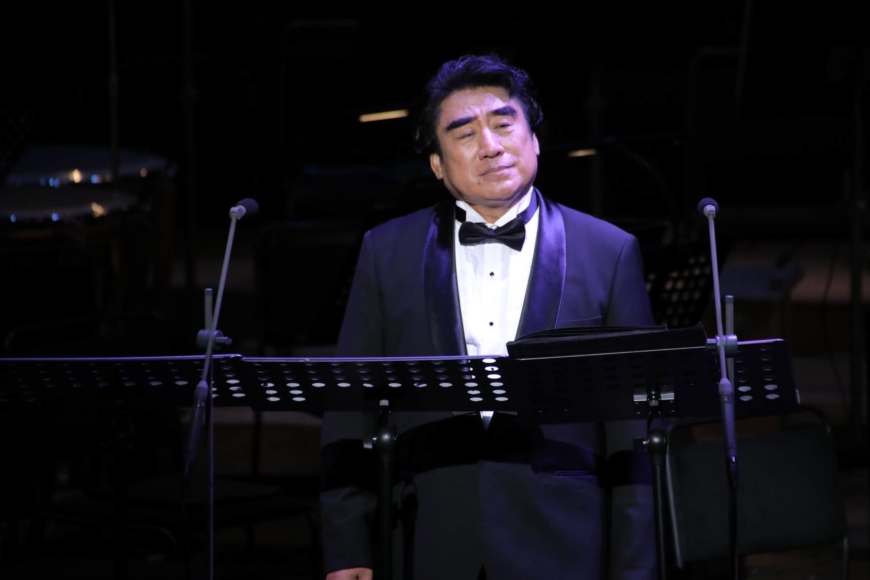
This was followed by a number of classical favorites from “Gianni Schicchi,” “La Boheme,” “Tosca” and Lehar’s “The Land of Smiles,” with Handa singing “Nemico della patria,” Gerard’s dramatic aria from “Andrea Chenier,” to rapturous applause from the enchanted audience. The choir also gave a stirring rendition of “Va, pensiero,” the choral masterpiece from Verdi’s opera “Nabucco.”
The trio of singers seamlessly transitioned from European classics to a modern Japanese composition. Accompanied by the chorus, they performed four excerpts from the “Shotoku Taishi,” which dramatizes the life of the Asuka Period (552 to 610) regent and patron of Buddhism. The work’s soaring melodies, touched by the flutes and bells of Japan’s traditional hougaku music, was entirely performed in Japanese and met with warm applause.
Handa concluded the first half of each evening’s performance by singing a different melodic prayer; two original compositions inspired by thoughts of the Virgin Mary.
After the intermission, the concert resumed with nine orchestral works that showcased the breadth of inspiration and themes of Handa’s compositions. He took up the baton himself to conduct three pieces: “The Ballad of Masashige Kusunoki,” a heroic uplifting work, “Perseus the Hero,” an energetic composition that showed off the skills of the orchestra and “Dance of Yakuju,” a danceable, almost tango-like piece.
The three singers returned for the grand finale, performing a lighthearted waltz from Lehar’s “The Merry Widow,” along with the final Handa composition of the evening, a charming drinking song inspired by the Seven Lucky Gods. The baritone came forward to bring the audience closer to the action with an expressive and humor-filled dance, as if giving some of his apparently boundless energy to the crowd.
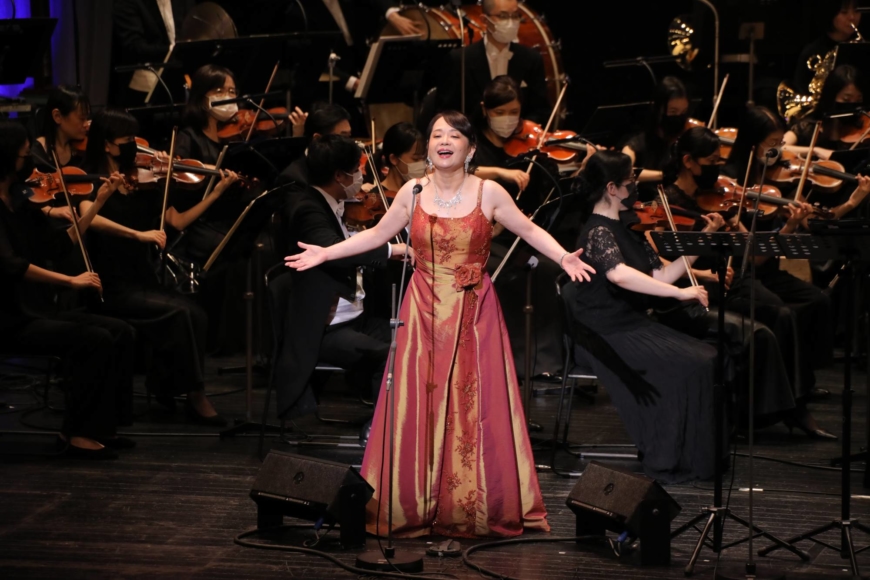
The music-loving audience gave the performers over 10 minutes of applause, clearly only resisting shouting “Encore!” to abide by the strict COVID-19 prevention measures put in place. After returning for four bows, Handa treated the audience to an impromptu encore of the Neapolitan song “Catari’, Catari” by American composer Salvatore Cardillo and “Nessun Dorma” from Puccini’s “Turandot,” one of the most challenging tenor arias in opera.
The gala concert coincided with the Handa Watch World exhibition and showcase at the Ariake Central Tower Hall & Conference, where from Sept. 17 to 20 over 60 luxury brands of watches and jewelry, usually exclusively available at the eight Handa Watch World shops around Japan, were available for viewing and purchase.
With many events canceled due to the pandemic, Handa provided a rare musical treat for classical music lovers. Besides being an artist himself, he is also the chairman of the International Foundation for Arts and Culture and the Tokyo Art Foundation, which both support various concerts and plays around Japan’s capital, as well as the International Sports Promotion Society, which promotes world peace via sports.



